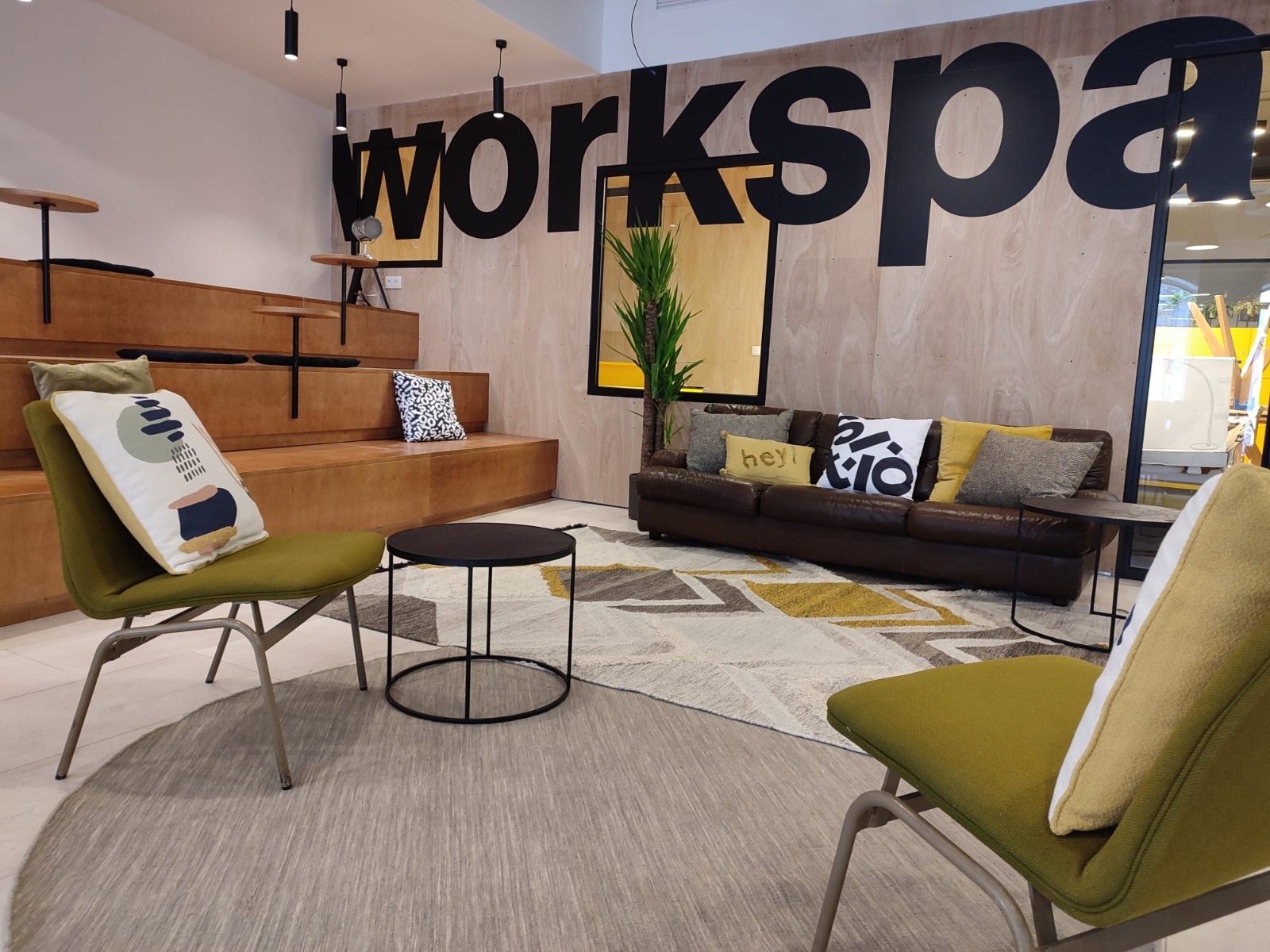The Himo group has just opened a cowork in Setúbal and is preparing to open two new Sitio in Aveiro and Lisbon. In these three projects alone, the group, which manages a network of coworkers and coliving spaces, has invested about 1.5 million euros. Braga, Cascais, Ericeira, Sines, Lagos and Évora are among the cities where the group intends to invest in new spaces.
“We are currently starting work on two new spaces, one in Aveiro, with approximately 1,000 m2, and another in Lisbon, with 2,400 m2, which will be the new space of the Fintech House, which is currently in another building of the network and is already a reference in the fintech ecosystem at the European level,” Miguel Ricardo, general manager of the Sitio network, of the Himo Group, tells Pessoas/ECO. “The investment in the conversion of these two spaces is about one million euros,” he adds.
“In the growth plan we have cities like Braga, Cascais, Ericeira, Sines, Lagos, Évora, among others. As for the business models for new spaces we are considering profit sharing, renting or sale and leaseback in which the Sitio brand, as operator, guarantees the profitability of the investor,” says the manager.
Setúbal joins the coworking network
The Sitio network is made up of 14 coworking spaces (ten in Lisbon, three in Porto, one in Setúbal) and eight coliving spaces (all in Lisbon). “The rapid growth of the network is also due to the support of the other companies of the Himo group, especially Habita (real estate broker) in the identification of real estate assets, Roots responsible for project development and management, and CMquadrado in construction,” explains the responsible.
Setúbal hosts the most recent Sitio to be born in the network. “Setúbal has an enormous potential to be one of the cities that provide a better balance between personal and professional life because it combines an important business fabric with a strategic position between the Arrábida mountains and the Sado estuary, which allows a great quality of life,” explains Miguel Ricardo. “It is also a great place to work for all those who live south of the Tagus and want to avoid the stress of commuting to Lisbon.”
The group invested 420 thousand euros in this space, having created two direct jobs and several indirect ones, namely in the cafeteria, stores, and support services.
Composed by two stores, a cafeteria – under Casa Borba’s management, with artisan products and organic coffee – Sitio de Setúbal has four meeting rooms and work spaces with capacity for 120 people, divided between offices and areas with dedicated or flexible work stations, for use by members or occasional clients.
Prices range from daily rates of 15 euros for flexible workstations to monthly fees of between 175 and 200 euros per office or dedicated desk.
“The price includes what we consider necessary for our members to arrive, turn on their computer and start working. Among the services included are high-speed internet, access to the space 24/7, a package of hours of use of the meeting rooms, and use of the pantry where free fruit and coffee are provided,” says the network manager.
Sitio members also have access to network-wide events and the ability to work in any of the other spaces. “This means that a Sitio Setúbal member can meet with a client in one of the Porto spaces or spend a day working in Lisbon,” Miguel Ricardo points out.
For the space in Setúbal, the manager also intends to develop events for the community and partnerships that increase well-being in the workplace, such as yoga sessions, massages, among others.
“It is intended that the space is an ecosystem between freelancers, digital nomads, startups and SMEs with constant synergies between members. All this activity and networking is also captivating for those who are telecommuting and who have here an alternative to working in the office or at home,” he says.
Miguel Ricardo says he is “very confident” about how the market is evolving and expects high occupancy rates. “We expect to reach occupancies between 85% and 90% when we get into cruising speed.”
Companies seek coworks
With the revolution in work models imposed by the pandemic, many companies have adopted hybrid models. With part of the workers in the office and many of them working remotely the concept of ‘third space’ has been gaining traction. Companies have been looking to network coworkers to function as a third office for their employees?
“It has increasingly been a reality and a way for companies to respond to the needs of workers in the current context,” says the managing director of the Sitio network without further details.
With distance working many companies are also increasing their hiring network, not limiting themselves to the areas where they have their offices. The Portuguese government even has a plan to create a network of coworkers in inland areas of the country.
It is a good initiative to combat the desertification of the interior, however, creating coworking spaces is not enough, we need to encourage and provide conditions for companies to establish themselves, create a community and develop a network between the various municipalities so that the ecosystem is sustainable,” warns Miguel Ricardo.
“We are available to help municipalities think about and develop their coworking spaces, as well as ways to captivate companies and provide them with conditions to develop.”
